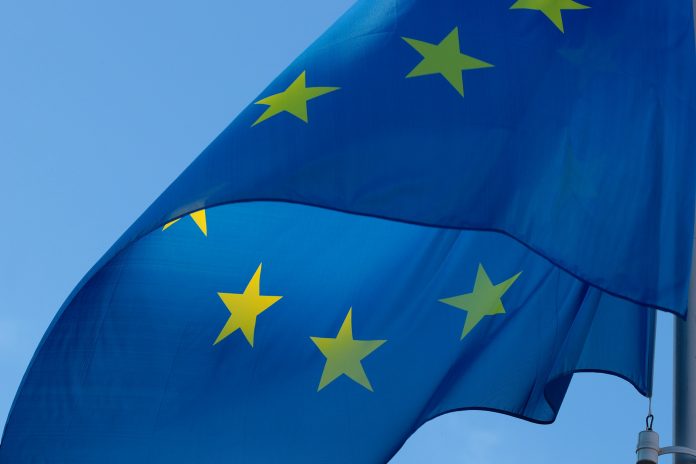In today’s blog, Dr Eirini Theofanidou, Proposal Development Executive, highlights the Marie Skłodowska-Curie Actions – Individual Fellowship, and the support provided by Edinburgh Research Office for applicants, including our information event on the 11 June.
Did you know you can attract postdoctoral researchers with outstanding potential from around the world to the University of Edinburgh, through a prestigious fellowship funded by the European Commission?
The Marie Skłodowska-Curie Actions (MSCA) – Individual Fellowship supports any researcher moving to the UK to work on cutting-edge research projects that will make an original and significant contribution to their research field, under the supervision of an academic. The fellowship is a great opportunity for researchers to enhance their career at the University of Edinburgh and the fellowship supports a two-way knowledge exchange, both in research and training skills.
The advantage to the University as a host organisation is that the Individual Fellowship grant provides a generous financing package: up to two years of living, mobility and family allowances for the researcher, as well as support to the host organisation for research costs, management and overheads.
The grant offers Fellows exciting new learning opportunities and a chance to add some sparkle to their CV. It supports their career development through participation in key training, research activities and events. This results in the unique opportunity to strengthen the Fellow’s international research network and open the gates to future collaborations.
What are the different types of Individual Fellowships?
European Fellowships (MSCA-IF-EF): European Fellowships are held in MS or AC and are open to researchers either coming to Europe or moving within Europe. The UK is still eligible to participate in all H2020 calls, the same as all Member States (see note at the end of the blog). European Fellowships last 12-24 months and can be either:
- Standard (MSCA-IF-EF-ST): Divided into 8 scientific areas/panels.
- Reintegration (MSCA-IF-EF-RI): These are for researchers who are returning from outside Europe into a longer-term research position in Europe, including in their country of origin. One interdisciplinary panel.
- Career Restart (MSCA-IF-EF-CAR): These support individuals to resume research in Europe after a career break. Researchers must not have been active in research for at least 12 months immediately prior to the deadline of submission. One interdisciplinary panel.
- Society and Enterprise (MSCA-IF-EF-SE): These are for researchers seeking to work on research and innovation projects in an organisation from the non-academic sector. One interdisciplinary panel.
Global Fellowships (MSCA-IF-GF): Global Fellowships are based on a visit to a third country and a compulsory 12-month return phase in a Europe host organisation. The duration of the fellowship is 24-36 months (12-24 months for the outgoing phase plus a 12-month return phase in Europe). Divided in 8 research panels.
All types of fellowships can also include a secondment period of up to three or six months in another organisation in Europe. This is not compulsory; it will depend on the nature of the proposed research and the career aspirations of the fellow.
Who is eligible to apply?
Applicants need a doctoral degree or at least four years’ full-time research experience by the time of the call deadline. They can be of any age and nationality.
The Fellow must not have lived or worked in the UK for more than 12 months during the three years up to the closing date of the call (9 September 2020). For the Individual Fellowship Society and Enterprise Panel, Career Restart Panel and Reintegration Panel, researchers must not have resided or carried out their main activity in the UK for more than 3 years in the 5 years immediately before the call deadline.
What does the application involve?
The proposal should be prepared by the researcher in cooperation with the applicant organisation – The University of Edinburgh, which is represented by the main supervisor in the framework of the proposal. It includes two parts: part B1, a 10-page research proposal comprising of three different sections: Excellence, Impact and Implementation and part B2, the CV of the fellow and the description of the Host Institution.
Support from Edinburgh Research Office
Edinburgh Research Office offers two different levels of support ranging from self-guidance to full proposal review. For full proposal review, we strongly advise you to contact our office at: europe@ed.ac.uk as we provide assistance on a first come first served basis and we have a limit to the number of proposals we can review.
Online information webinar for potential Fellows
We will be holding a webinar at 10.00 am 11 June 2020, aimed at those interested in applying for a MSCA Fellowship. We encourage Edinburgh PIs to share this information with potential fellowship applicants.
During the webinar, we will provide all necessary information regarding the development of a successful proposal, as well as pitfalls to avoid. The webinar will be followed by a Q&A session. Potential Fellows need the agreement of a University of Edinburgh supervisor to attend the webinar.
The webinar is free of charge. To register or if you have any questions about this please email Dr Eirini Theofanidou: E.Theofanidou@ed.ac.uk by 9 June.
The Withdrawal Agreement and EU funding
The Withdrawal Agreement as agreed between the European Union and the United Kingdom entered into force on 1 February 2020. In overall terms, on the basis of the Withdrawal Agreement, the UK-based legal entities will continue to be fully eligible to participate and receive funding in the current 2014-2020 EU programmes, including this call of Horizon 2020, as if the UK were a member state until the closure of these programmes, unless security considerations apply. This means that UK beneficiaries can continue – without interruption – to receive grants awarded under the current and previous multiannual financial frameworks (MFFs) until their end dates, even if these are after 2020.
In light of the above, for the Reintegration Panel and Global Fellowships, researchers who are UK nationals and long term residents (including periods spent within UK) will also continue to be eligible.



